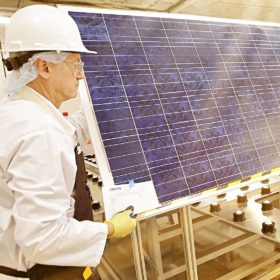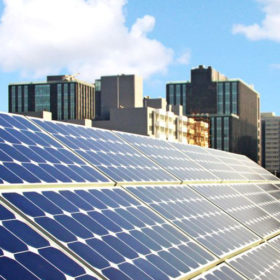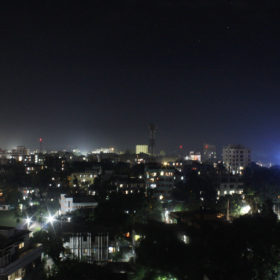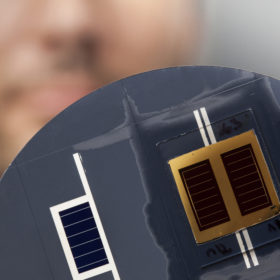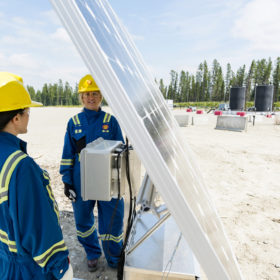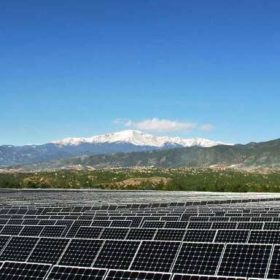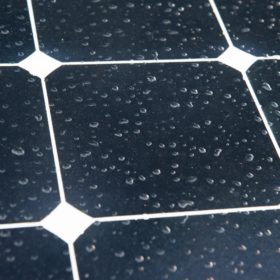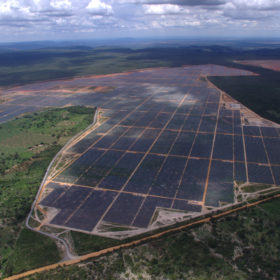EU Researchers achieve breakthrough in nano-scale c-Si
A team of scientists representing the photoNvoltaics project, funded by the European Union, has been able to develop a crystalline silicon cell with an effective thickness of just 830 nano-meters.
Canadian Solar connects 27.3 MW PV plant in Japan
Module manufacturing heavyweight Canadian Solar today announced the start of commercial operation on a 27.3 MW PV power plant in Tottori Prefecture, Japan.
U.S Researchers look to plant photosynthesis to improve solar efficiency
A team of scientists at Georgia State University has discovered a process that occurs naturally in plants. Known as ‘inverted-region electron transfer’, better understanding of this process could contribute to the design of higher efficiency solar cells, says the University.
DNV GL report criticizes EU demand response regulations
A study carried out by energy consultants DNV GL has found that the European Commission’s draft proposal on demand response regulations is “incompatible with market principles,” and made several recommendations for its improvement.
Intraco Solar Power signs contracts for 30 MW PV plant in Bangladesh
Bangladesh based company Intraco Solar Power has signed a a 20-year PPA and construction agreement with two government agencies, for the development of a 30 MW PV power plant to be located on the outskirts of the city of Rangpur.
Swiss researchers team with NREL to break 35% cell efficiency
A collaborative project between the U.S. National Renewable Energy Laboratory, the Swiss Center for Electronics and Microtechnology (CSEM) and the École Polytechnique Fédérale de Lausanne (EPFL) has tested a range of multi junction cells in tandem configuration, and achieved efficiencies of up to 35.9%.
Shell receives approval for 250 MW PV plant in Australia
Multinational oil company Shell is reportedly assessing the viability of a planned 250 MW solar power plant in the Western Downs region of Queensland, Australia, having received approval for the project from the local council.
GTM Research: Global solar capacity to rival nuclear by end of 2017
Information from the latest edition of GTM Research’s Global Solar Demand Monitor shows that solar’s globally installed capacity is rapidly catching up with that of nuclear, and that solar could in fact grow to more than double nuclear’s current capacity within the next five years.
Dutch researchers model perovskite performance
A team of researchers at the Netherlands’ AMOLF institute has modelled the performance of tandem perovskite/silicon solar cells under real-world climate conditions, and found that the tandem cells are little more efficient than the Si cell alone. The research shows, however, that if correctly optimized, this type of cell could perform at efficiency levels above 38%.
IHS Markit raises 2017 global installations forecast
Industry analyst IHS Markit has raised its forecast for global installations in 2017 to 90 GW, representing 14% growth on the previous year’s figures. Continuing demand in China after the June 30th FIT cut is cited as the main driver for the increased expectation.

